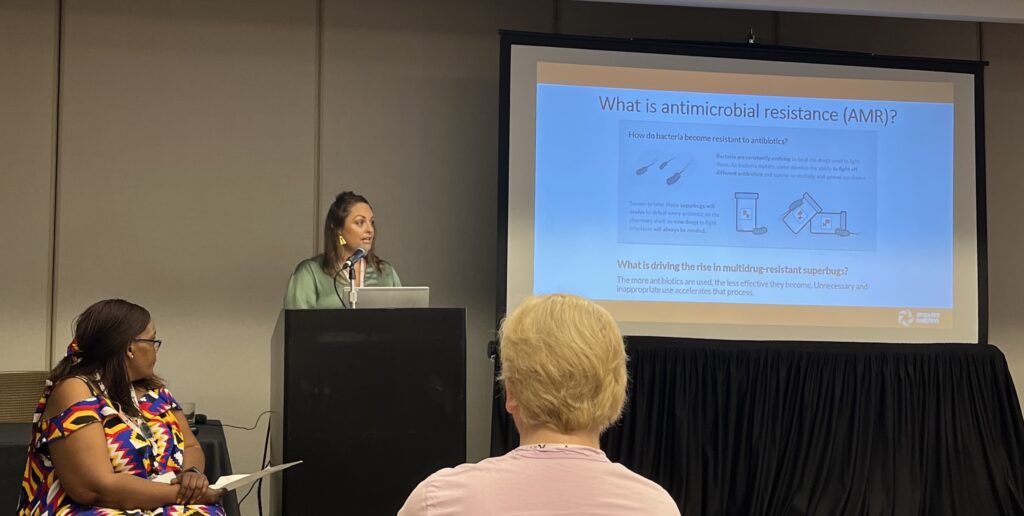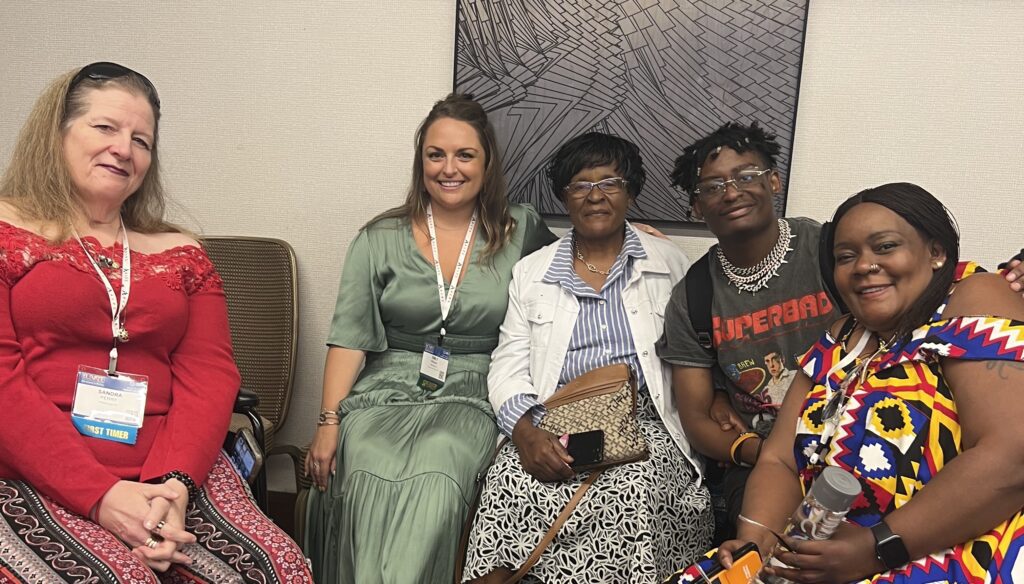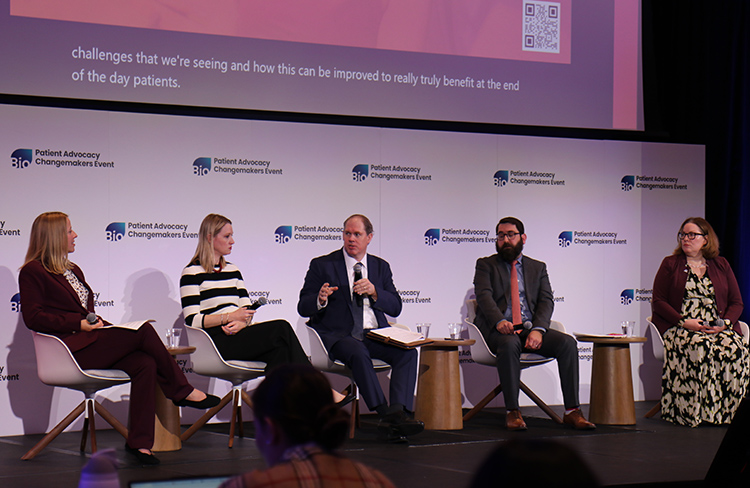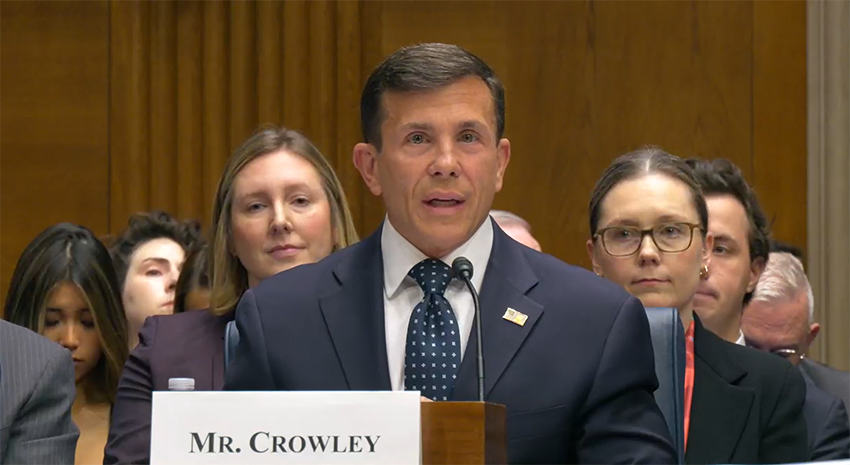Photo: BIO’s Emily Wheeler (second from left) with Jean Mwale, Amputee Coalition regional ambassador and sepsis survivor (right), at the Amputee Coalition 2023 National Conference.
Antimicrobial resistance (AMR) is a challenge on its own, but for patients with limb loss and limb difference, it’s an even more serious health threat.
AMR directly impacts the limb loss and limb difference community by making wound care more difficult and increasing the risk of sepsis, said Emily Wheeler, Director of Infectious Disease Policy at the Biotechnology Innovation Organization (BIO), who spoke at the Amputee Coalition 2023 National Conference in Orlando in August 2023.
“An amputation itself can both be caused by a resistant infection or can sometimes, unfortunately, result in a drug-resistant infection,” she explained.

She spoke alongside Jean Mwale, a sepsis survivor, advocate for the limb loss community, and an Amputee Coalition regional ambassador. Jean developed a septic shock infection so severe that it resulted in bilateral below-the-knee amputation and the amputation of four fingertips on one of her hands.
The two-time cancer survivor is a native of Zambia and her work focuses on spreading awareness about limb loss and limb difference.
Though challenging and hard, Jean Mwale told CBS Pittsburgh that she wouldn’t take the battles away.
“I said, you know what, why am I depressed? I’m alive,” she said. “I want to be that voice.”
She founded Miracles of Hope, which she calls a “bridge” to help patients like her.
According to a study published by The Lancet in 2022, AMR was directly responsible for more than 1.2 million deaths in 2019. This surpassed AIDS-related deaths (860,000) and malaria-related deaths (640,000). In total, AMR was linked to nearly 5 million fatalities in 2019.
What can we do about AMR?
The logical response to this data would be the development of new antibiotics and antimicrobials. However, because these drugs are meant to be used sparingly, their development is “risky and relatively unprofitable,” according to a study published by The Journal of Antibiotics.
“Although clinicians, health policy professionals, governments, industry, and the public have recognized the rise of AMR as a growing threat, significant challenges remain in bringing innovative new antimicrobial therapies to patients,” Wheeler said in an interview with Good Day BIO.
“Thus, an innovative incentive strategy is needed to encourage sustainable investment in antibiotics,” said the same study.
The PASTEUR—or the Pioneering Antimicrobial Subscriptions To End Up surging Resistance—Act is one possible solution. The bipartisan legislation would “help repair the foundational challenges of the antimicrobial marketplace and drive the development of new, innovative treatments for patients,” said Wheeler. The U.S. House and Senate reintroduced the legislation in April 2023, but Congress has not voted on it yet. BIO has called for the inclusion of The PASTEUR Act in the reauthorization of the Pandemic All-Hazards Preparedness Act (PAHPA), which expires on September 30.
Patients and patient groups could help by advocating for passing the bill, Wheeler added.
For her part, as a Regional Amputee Coalition Ambassador, Mwale will have the chance to meet with lawmakers, speak at events, mentor Amputee Coalition Lead Advocates, and campaign even more for the community of people who have lost limbs.




